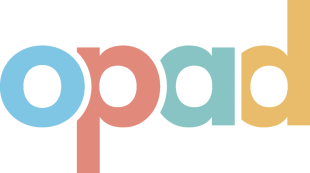Private Sector Partnerships with OPAD for Poverty Alleviation and Development
In the pursuit of poverty alleviation and sustainable development, collaboration between the public and private sectors is crucial. The Organization for Poverty Alleviation and Development (OPAD) recognizes the immense potential of private sector partnerships in driving positive change. By harnessing the resources, expertise, and innovation of businesses, OPAD aims to create impactful solutions that address poverty and promote inclusive growth. This article explores the various ways in which the private sector can partner with OPAD to make a lasting difference in the lives of the underprivileged.
private sector + partnership
The private sector has a unique opportunity to contribute to poverty alleviation and sustainable development by partnering with OPAD. Through financial contributions, expertise sharing, innovation, public-private partnerships, and advocacy, businesses can make a tangible difference in the lives of the underprivileged. By joining forces with OPAD, private sector organizations can help create a more equitable and prosperous world, where no one is left behind. Together, we can unlock the potential for positive change and build a brighter future for all.
Financial Contributions
Private sector organizations can contribute to OPAD's mission by providing financial support. This can be in the form of direct donations, corporate social responsibility initiatives, or establishing dedicated funds for poverty alleviation and development projects. By investing in OPAD's programs, businesses can help fund critical interventions, such as education and vocational training, healthcare initiatives, and microfinance schemes, which empower individuals and communities to break the cycle of poverty.
Innovation and Technology
Innovation and technology have the potential to revolutionize poverty alleviation efforts. Private sector organizations can partner with OPAD to develop and implement innovative solutions that address specific challenges faced by marginalized communities. This can include leveraging technology for financial inclusion, creating sustainable agricultural practices, or improving access to clean water and sanitation. By combining OPAD's on-the-ground knowledge with the private sector's technological advancements, transformative solutions can be achieved.
Advocacy and Awareness:
Private sector organizations can play a vital role in raising awareness about poverty-related issues and advocating for policy changes that promote inclusive growth. By leveraging their influence and networks, businesses can support OPAD's advocacy efforts, helping to shape public opinion and mobilize resources. This can include corporate social responsibility campaigns, public-private dialogues, or collaborations to promote sustainable business practices that benefit both society and the environment.
Expertise and Technical Assistance:
Public-Private Partnerships:
Collaboration between the public and private sectors through public-private partnerships (PPPs) can be a powerful tool for poverty alleviation and development. OPAD actively seeks partnerships with businesses to jointly implement projects that leverage the strengths of both sectors. By aligning their resources and expertise, OPAD and private sector partners can maximize impact, improve efficiency, and ensure the sustainability of interventions. PPPs can range from infrastructure development projects to social enterprise initiatives that create employment opportunities.

The private sector has a unique opportunity to contribute to poverty alleviation and sustainable development by partnering with OPAD. Through financial contributions, expertise sharing, innovation, public-private partnerships, and advocacy, businesses can make a tangible difference in the lives of the underprivileged. By joining forces with OPAD, private sector organizations can help create a more equitable and prosperous world, where no one is left behind. Together, we can unlock the potential for positive change and build a brighter future for all.


